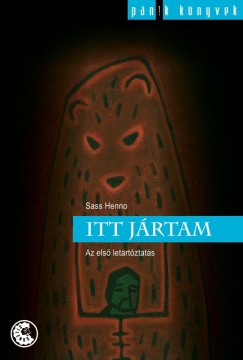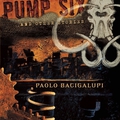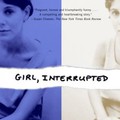 After reading some novels by Erlend Loe, I became interested in the literature of other Scandinavian and Northern-European countries, and this Estonian novel seemed to be a good read from the account I read on it. Before I started reading properly, I skimmed through the blurb several times, looked at the illustrations, read one or two sentences from random pages, and I formed some impressions in my mind which were quickly refuted by the novel. I thought that this book would be about a bunch of loud-mouthed cool guys who think they can get their revenge for whatever hurts they harbour and get rid of their boredom if they indulge in casual violence and commit petty crimes, but in the meantime they act like this only to show off their strength. I had to realize that this was not the case here.
After reading some novels by Erlend Loe, I became interested in the literature of other Scandinavian and Northern-European countries, and this Estonian novel seemed to be a good read from the account I read on it. Before I started reading properly, I skimmed through the blurb several times, looked at the illustrations, read one or two sentences from random pages, and I formed some impressions in my mind which were quickly refuted by the novel. I thought that this book would be about a bunch of loud-mouthed cool guys who think they can get their revenge for whatever hurts they harbour and get rid of their boredom if they indulge in casual violence and commit petty crimes, but in the meantime they act like this only to show off their strength. I had to realize that this was not the case here.
The narrator of the book is 20-year-old Rass who gets arrested at the beginning of the novel for an unspecified crime. During his night and day in prison he writes down the story of his first arrest and the way that led there. Rass was 17 when that first arrest happened: he was a more or less innocent, rather naive, intelligent boy who got involved in things over which he quickly lost control, and he was forced to commit ever more serious crimes if he wanted to stay alive – and his arrest was just a matter of time.
According to the categorization of the publishing house, this is a crime story, so I don't want to indulge in the details of the novel and diminish the thrill one can get out of the story itself. However, I didn't really read this book as a crime story, I rather felt this to be the depiction of a gloomy and unhappy world where no-one has a lot to look forward to. The bleak and cold housing estate where the story takes place reminded me of the movie Lilya 4-ever – so if you know that film, you can imagine the atmosphere of this novel as well.
So this is a rather harsh, brutal and very unhappy novel, and the future of the characters does not hold much good, just as their past was not too bright either. For me it was at the same time morbidly interesting and very painful to read as Henno managed to create the whole previous life of certain characters with half a sentence or a shred of memory. (Though he did not succeed equally well with every character.) What made this even more gloomy was the fact that the memories of the characters contained no nostalgia, as the past was as bleak as the present.
Besides, I found it remarkable that the author could depict the changes of Rass' thoughts and emotions with a few short sentences or a strong picture. For instance, the episode when Rass changes the name of his girlfriend in the memory of his mobile was one such very good moment of the novel; similar to this is the part where Rass accepts young Hanna as a member of his family and makes it clear that from that point, he is even willing to sacrifice his life for her. I was rather impressed by the fact that Henno did not feel the need to go into too many details and explain (and especially over-explain) everything: the deeds of his protagonist speak for themselves. The language of the novel also needs to be mentioned here: on the whole it is cold, objective, often strong and vulgar, but sometimes a strange kind of poetry shines through the lines, which for me makes the book even more gloomy.
Though there is quite a lot to praise in this novel, I have to mention that the characters of the gang members (with the exception of Rass) were a bit shapeless and weightless. While reading, I needed to turn back the pages quite a few times to find out again whether Aivo is the alfa-male of the housing estate and Jann is the only boy whose parents live in a happy marriage, or it is the other way around.
As regards Rass, his 17-year-old self is seen and depicted through the eyes of his adult self. 20-year-old Rass, apart from telling us the story of his younger self, is also continuously reflecting on his young counterpart and refers to his naivety and also to the fact that he has learned a lot since then. For me it's very interesting to see how the narrator creates a distance between himself and his younger self, while it is painfully obvious that his present character and life directly descends from that of the 17-year-old Rass. And while we are at it, it would be hard not to notice that the name of the protagonist is almost the same as that of the author: the novel is suppossed to contain some autobiographical elements, though I did not find any reliable information on the extent to which this book is autobiographical.
I found, however, in an old article, that this novel was suppossed to be the first part of a trilogy. In the intervening years, Henno published some other works but I don't know if any of those is a sequel to this novel or they are standalone books. Anyway, I would be happy to read the sequels to this book, as this novel clearly shows that it's quite easy to reach the bottom of the pit, but I would also be interested in the ways one can move on from there.
 After reading some novels by Erlend Loe, I became interested in the literature of other Scandinavian and Northern-European countries, and this Estonian novel seemed to be a good read from the account I read on it. Before I started reading properly, I skimmed through the blurb several times, looked at the illustrations, read one or two sentences from random pages, and I formed some impressions in my mind which were quickly refuted by the novel. I thought that this book would be about a bunch of loud-mouthed cool guys who think they can get their revenge for whatever hurts they harbour and get rid of their boredom if they indulge in casual violence and commit petty crimes, but in the meantime they act like this only to show off their strength. I had to realize that this was not the case here.
After reading some novels by Erlend Loe, I became interested in the literature of other Scandinavian and Northern-European countries, and this Estonian novel seemed to be a good read from the account I read on it. Before I started reading properly, I skimmed through the blurb several times, looked at the illustrations, read one or two sentences from random pages, and I formed some impressions in my mind which were quickly refuted by the novel. I thought that this book would be about a bunch of loud-mouthed cool guys who think they can get their revenge for whatever hurts they harbour and get rid of their boredom if they indulge in casual violence and commit petty crimes, but in the meantime they act like this only to show off their strength. I had to realize that this was not the case here.




